It would seem from conducting some recent conversations with industry colleagues that we are now seeing a steady, but restrained return to normality in terms of public welfare and optimism in dealing with this crisis. And at long last we are seeing a steady, consistent fall in Covid cases, resulting in fewer deaths.
As for our industry, the grass does not stop growing, so we must continue to what we do best and get on with safely maintaining our parks, open spaces, estates, school playing fields and sports facilities.
During the lockdown we have seen via social media, many examples of the dexterity, innovation and determinedness of our grounds managers and staff who have been working tirelessly under difficult measures to maintain their facilities – a great example being Karl McDermott at Lords.
I was speaking to a fellow editor last week and we discussed the fact that we had both seen and heard so many positive responses to this crisis and were impressed how our sports turf industry was dealing with and working through this crisis. Also encouraging was the fact that we as an industry will more likely come out of this crisis fairly unscathed compared to other industries.
Yes, we are dealing with unprecedented events, but at the same time seeing many good things happening in terms of responses to dealing with Covid-19. Our industry in my eyes, has always been unique and vibrant in that we are a band of brothers who work hard to meet the many challenges we face when maintaining land based facilities.
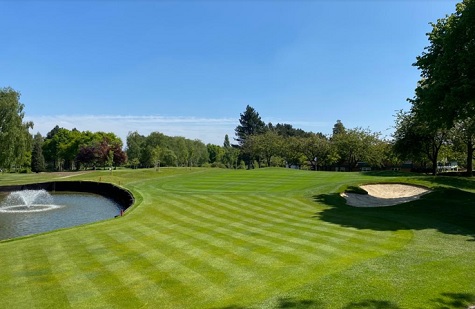
There has always been, in my experience, a fellowship and respect for one another and a common goal in producing the best we can with the resources we have at our disposal. But above all we have always had a trait of helping one another. This can be seen in the attitude and resolve of many of practitioners as recently highlighted in two recent TurfPro golf articles featuring Olton GC and Robin Hood GC in Birmingham.
During the crisis we have seen the important role that our public parks and open spaces have played in allowing many thousands of people to get some respite and important exercise during the lockdown. Now, with further restrictions lifted in England, people are able to make greater use of these wonderful assets.
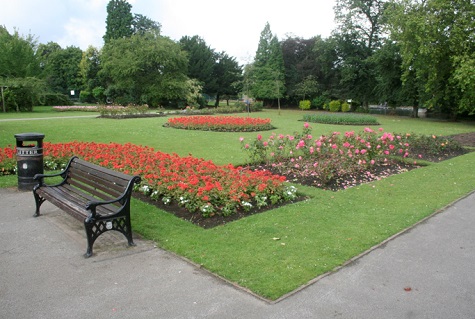
I and many parks officers up and down the country are hoping that after this crisis we will see more government investment in these vital public facilities. A recent Cabe Space report said it is estimated that each year well over half the UK population – some 33 million people – make more than 2.5 billion visits to urban green spaces alone. Not surprisingly, people become attached to these parks, gardens and other open places, and appreciate them for what they offer culturally, socially and personally. In research carried out for CABE, 85 per cent of people surveyed felt that the quality of public space and the built environment has a direct impact on their lives and on the way they feel.
I firmly, believe that local authorities will finally get the much-needed funds, or a revised funding regime, once this crisis is over for the long-term management of these vital assets.
However, we must not lose track of what other issues we may face after this crisis has run its course. There will be many businesses, sports clubs and jobs lost due to the consequences of Covid-19 and the fact that getting back to normality will take longer than people think.
It will be interesting to see how many people are able and indeed willing to return to our industry once this pandemic is over. We already know we are facing difficult times recruiting youngsters to come and work in our industry. Many may like the thought of working outdoors, but when push comes to shove, the reality of the job for many starting out at the coal face is that it is a manual job, that often means working weekends and not always that well paid.
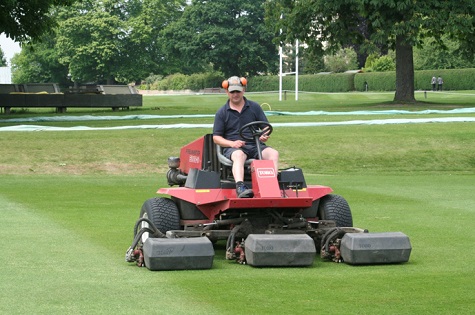
Recruiting new blood into the industry will be a vast challenge for us all, across all sectors of our industry, whether it be football, golf, schools, local authorities, manufacturers, dealerships, the problems remain the same. We have been tarnished for many years with the reputation for low pay and little recognition for our skills and knowledge.
I personally do not see it this way. I truly believe that working in our diverse sports turf / horticultural industry gives us so many unique opportunities to work anywhere in the world and enjoy a lifestyle that is varied and interesting, that the amount of money you are earning is not essentially the driving force in the job you a doing. It is really about the effect you can have on the environment and the benefits you get from seeing people enjoy the fruits of your labour.
I have spoken about this subject in previous blogs and, as many of us know, pay and working conditions have improved immensely along with the wide variety and scope of skills required to work in our industry.
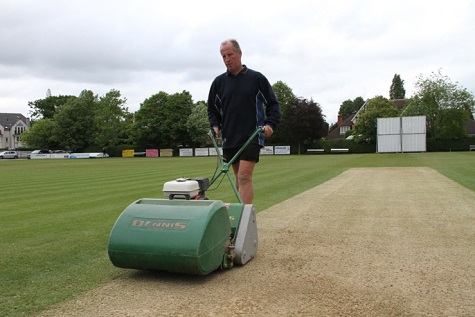
I personally believe we may benefit from a joint effort, that is to say, run a national recruiting campaign encompassing all our national institutions, such as BIGGA, GMA , BAGMA, R&A , professional sports clubs, Fields In Trust, Parks Alliance, APSE, educational colleges and major manufacturers / businesses. All with the aim to engage with the next generation and encourage them to come and work in our wonderful industry.
For example, take the professional football industry. In my discussion with my fellow editor we thought they have a great opportunity and a very easy means to market and promote the important role that their groundstaff play in maintaining and producing the playing surface for their elite pro footballers to display their skills and create the theatre we know as the Premier League.
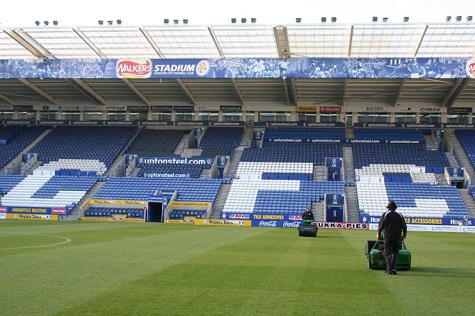
All it would take is a few promo photos displayed in and around the stadium of their groundstaff working both in the stadium and at training grounds. That way the fans and supporters get to see the work being done to facilitate the professional game.
This would certainly raise the profile of the groundstaff and give them the recognition they deserve and perhaps enable new blood to want and come and work in our industry. This could be rolled out at all major sporting venues and would no doubt raise the profile of our industry.
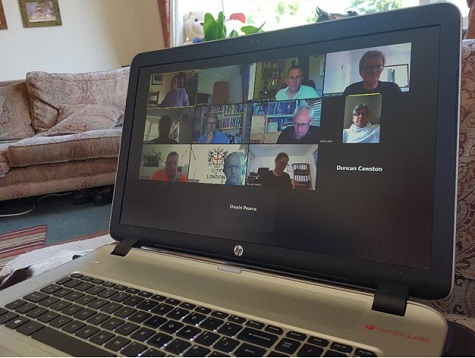
My final two observations for this week was brought about by the fact I was invited to attended a webinar meeting organised by Simon Morley of on behalf GPSV, a company who specialise in the sale of ex-MOD – NATO and ex-PLC Trucks, machinery and specialist vehicle sales.
The aim of the meeting was to catch-up with a number of their customers and clients and see how they were coping during the current lockdown. Invited were a number of councils, manufacturers and machinery dealers. Most local authorities mentioned how they were deploying staff and what their plans were for offloading and buying new fleet and machinery. It would seem several councils were extending some contracts and waiting to see the outcome of the Covid crisis before committing to investing in more machinery and fleet sales. And in the main most dealers and manufacturers were being very accommodating and helpful throughout the crisis.
Finally I caught up with Professor John Moverley from the Amenity Forum who kindly told me how they were coping during the crisis. He said, “The pandemic has changed the way that we all live our lives and its consequences will be long lasting and very painful for many.
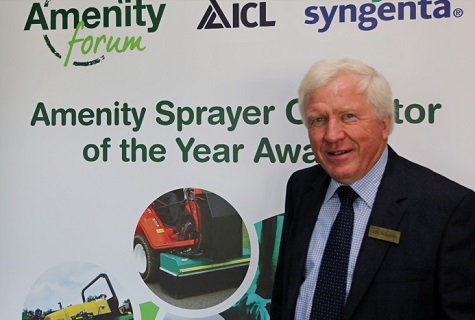
“It has highlighted the importance of health, safety and sustainability. It has also brought to the fore the importance of amenity management, keeping our amenity spaces safe and fit for purpose, maintaining transport networks, our parks and more. It is vital that all of us can be assured that the operations undertaken are of the highest professional level undertaken by trained and qualified staff. In that context the launch of the Amenity Standard earlier this year is well timed and highly relevant. For those using services it is a sign of quality and assurance that the work undertaken is of the highest standard.
“Out of challenge always can come positive. As a Forum we will certainly use it to emphasise how important what the sector does is to everyone and why it is important to seek out professionals committed to best practice. We also have welcomed the emphasis Government has put on science and facts and will look to build on that in discussions on the use of pest, weed and disease management techniques.
“The review of the UK National Action Plan is on-going and we are feeding into this. The next plans are likely to be built upon a UK framework but with individual plans for each nation. Over recent weeks I have been producing video clips focusing on the issues being discussed. These can be found at the Amenity Forum YouTube site.”
I cannot sign off without a mention of Captain Tom Moore who is to be knighted for his fundraising efforts after a special nomination from the prime minister.
The war veteran raised more than £32m for NHS charities by completing 100 laps of his garden before his 100th birthday in April.
Capt Tom, who was given the honorary title of colonel on his 100th birthday, had initially set out to raise £1,000 for NHS charities by walking laps of the 25m (82ft) loop in his garden in Marston Moretaine, Bedfordshire.
But he eventually raised a staggering £32,794,701 from more than one and a half million supporters - and for that, we salute you!